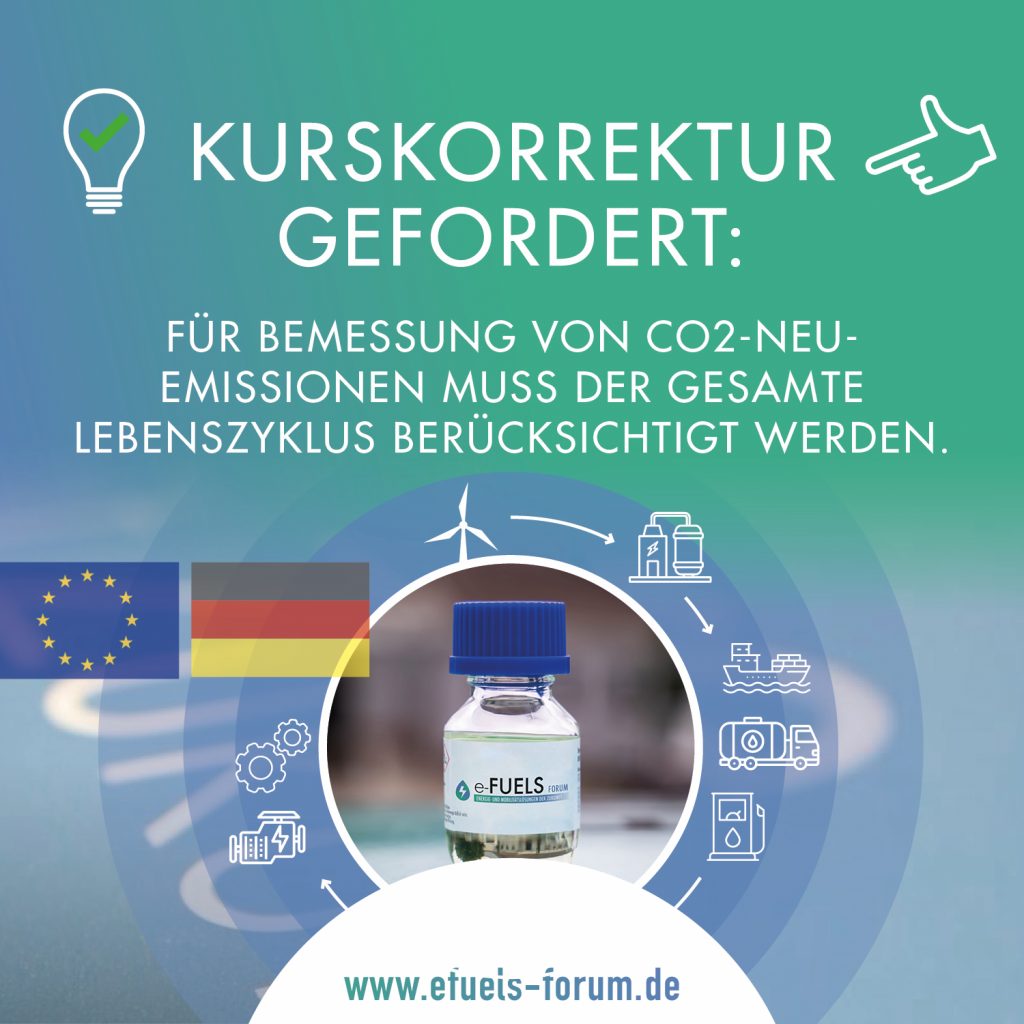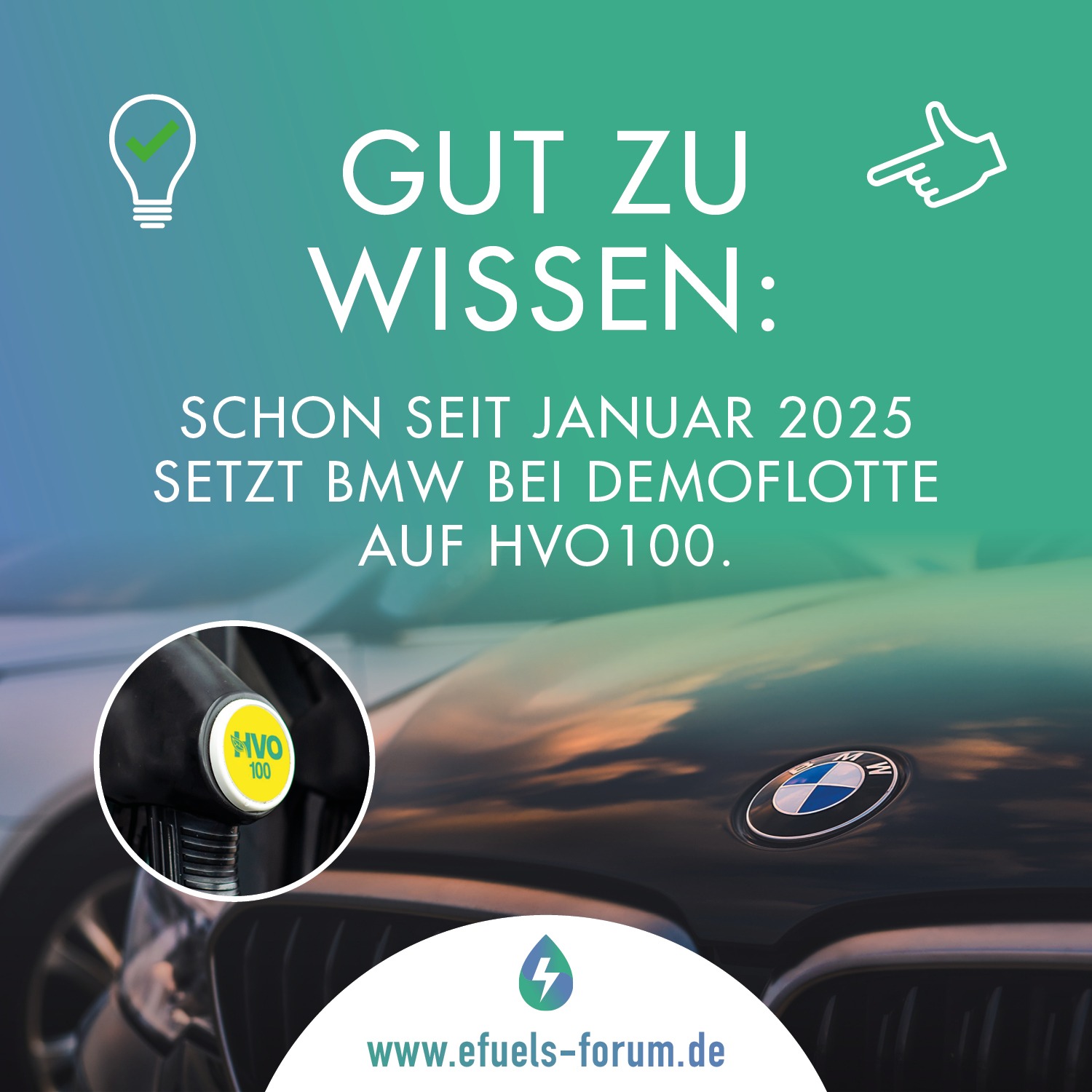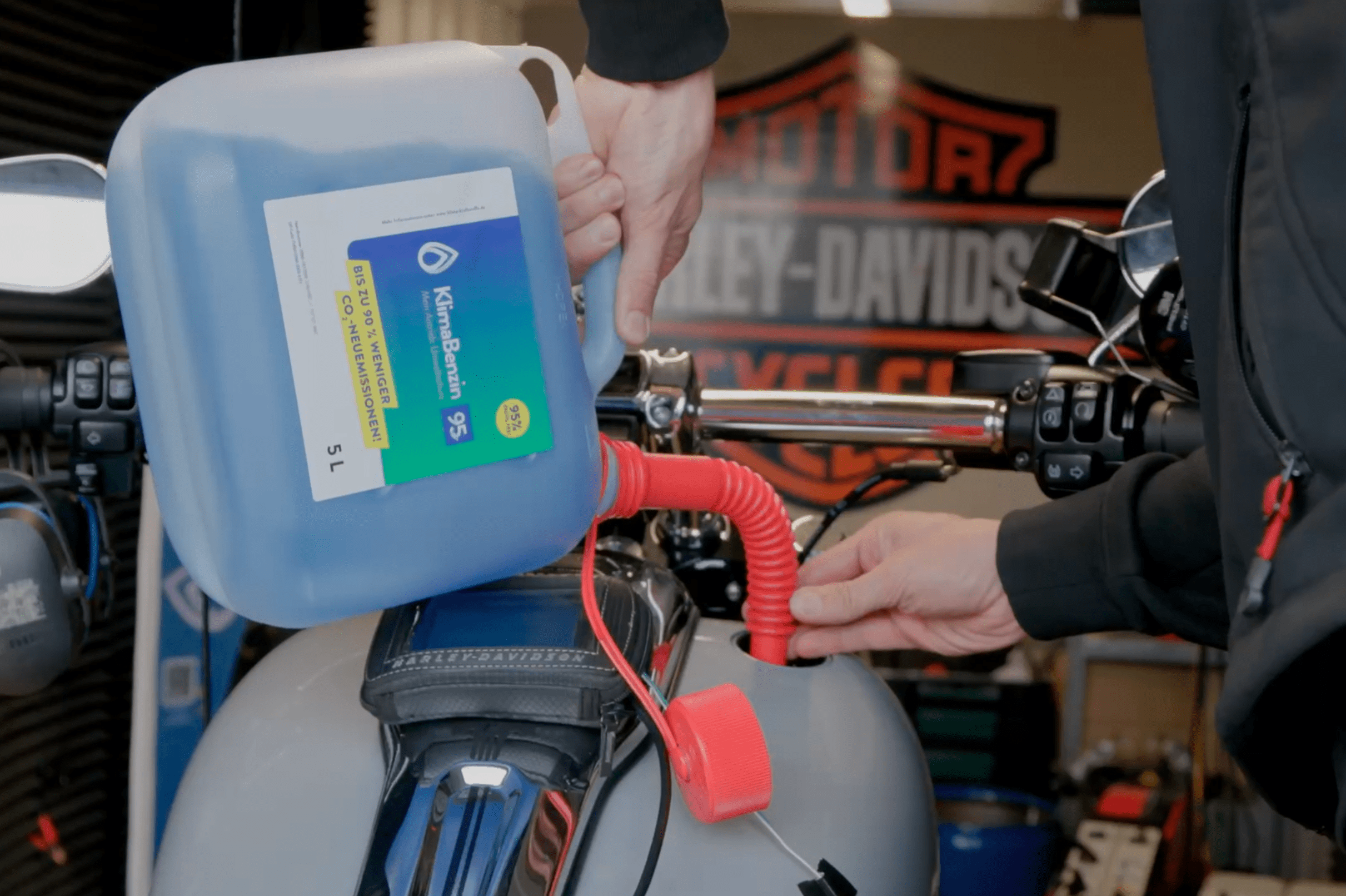Is the current EU measurement methodology or EU CO₂ new emissions assessment, which is used as the basis for regulating limit values for combustion engines with synthetic fuels, at all objective, fair, scientifically correct and useful for our climate targets?
Of course: NO!
Because instead of measuring the entire life cycle in terms of new CO₂ emissions when it comes to synthetic fuels – i.e. from production to transportation to “combustion” – today only the CO₂ exhaust gases at the vehicle’s tailpipe are measured. Keyword: pure “tailpipe” focus.
Why is this one-sided approach distorting?
1. For example, this “tailpipe measurement method” is also wrongly used implicitly for electric cars – and since an electric car has no tailpipe, the new emission is rated as 0 – without taking into account how much CO₂ is produced during the production and disposal of batteries or electric cars, the transportation of the vehicles and the generation of electricity if the electric car runs on coal-fired power, for example.
2. “In the future, eFuels will cause almost 100 percent less new CO₂ emissions in production than fossil fuels. Some production processes are already producing up to 90 percent less new CO₂ emissions. The reason: no additional CO₂ is released into the atmosphere during combustion if the entire production process is based on renewable energies.” (PM eFuels Forum)
The demand is therefore:
1. Genuine openness to technology
2. Assessment and regulation based on the life cycle approach
The eFuels Forum otherwise welcomes the announcements by German Chancellor Friedrich Merz and EPP leader Manfred Weber regarding important course corrections in the European regulation of fleet limits for vehicle drives.
We keep our fingers crossed!
More about the eFuels Forum press release:
https://www.efuels-forum.de/





